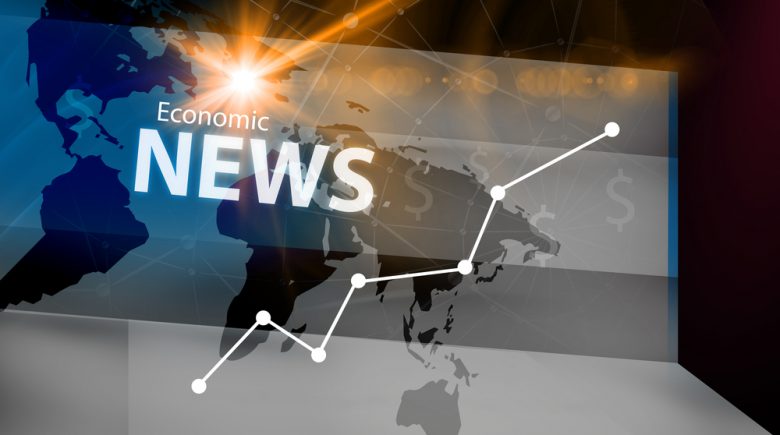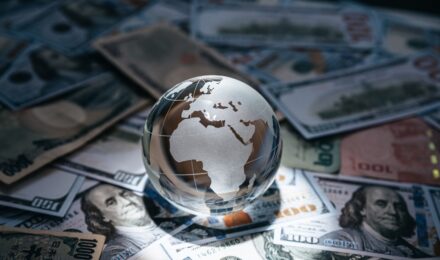To introduce this topic of economic news, we’d like to review what has recently happened to China’s economy and how it will or can affect the world economy as a whole. China has the biggest population and so it will have an impact on the world economy whether we like it or not, it’s simply a law of physics. Think about it this way, if there’s a bunch of elephants in a jungle and one pool of water, and the elephants keep drinking from it and having more elephants, sooner or later the pool will get dirty and dwindle down until it dries, unless there’s a large storm or rain to replenish it.
What has happened in China is that there are too many elephants and the pool is lower than it has been in 27 years. The real title of many news articles written about this is “China’s Economic Growth Hits 27-Year Low as Trade War Stings”. There have been tensions of trade between China and the United States and so this has caused the Chinese economy to stifle its growth. May 10th marked a significant step in the slow growth of the Chinese economy after U.S. president Donald Trump decided to raise tariffs on Chinese goods.
The cost of living has increased, industrial production is getting weaker, in line with investments from the private sector. Home sales have also dwindled, as have productions of vehicles. Even though these past few months have slowed down the Chinese economy, they are still pumping lots of capital to continue to build infrastructure for its growing population. There are many towns which need to be connected and could provide a solution as more people would be able to be connected with large cities in order to create jobs and help the economy.
We will remain on the lookout to see what happens between the United States and China and to track progress of growth from here on out. It is a scare that has put many countries on alert.
Economic News of The World and Their Impact
Now, moving onto other economic news that you may want to know about, lets talk about the fed, central banks, jobs, the U.S. economy, Europe’s, Asia’s, and the economy of the world.
THE FED: This is an abbreviation for the federal reserve. The federal reserve, for those who don’t know, is the central banking system of the United States. It was created in 1913 to allow a central system to control the money of the country and to do what it can to “alleviate financial crises”. On July 15th, it was stated that the federal reserve and the markets of the United States are being challenged by the 2020 elections, trade with other countries like the deal we described with China, and geopolitics. Politicians say that we are ready to go into a recession and that the federal reserve is due to make some interest rate cuts.
CENTRAL BANKS: The major story of central banks is currently whether or not they are to be blamed for the problems happening in the world economy. Yes, central banks have the potential to lower interest rates, but the real issues are political and sprout from an uncertainty of trade with the recent Chinese and U.S. trade wars being a major topic.
JOBS: There’s a trend happening in the job sector and that’s the availability of jobs being offered to people without a college degree. I believe it is stupid for an employer to require certain skills, but then ask for a bachelor’s degree or higher. There are many qualified people who could probably do the job better than most college graduates, but employers don’t hire them because they’re used to hiring college graduates. Mississippi, Rhode Island, Montana, and North Carolina are the states that are leading the way to allow and guide those without college degrees to find a suitable job.
U.S. ECONOMY: “The U.S. economy is moving along a growth path of 3.1 percent”. This however seems to be more growth than the country can handle since it was expected to be able to cover a 2% increase. The current increase is a point higher, but we seem to be coping with it pretty well. The DOW Jones Industrial Index closed above 27,000 for the first time ever on July 11. The increase is due primarily to investors being optimistic that the Federal Reserve will cut interest rates, which will serve as insulation from the Chinese fiasco occurring right now.
EUROPE ECONOMY: We will focus on one European country, Britain. It is currently facing its highest risk of inflation since many of its financial sectors are contracting. One of those is the construction sector through contracting since manufacturing have had their worst month in six years. A lot of this is due to what we have described in this article, and that is that the world economy is slowing down and impacting countries like Great Britain. The Bank of England publicly announced that it expected its economic growth to be a big fat zero, ouch.
ASIA ECONOMY: Finally, lets talk a little bit about the economic status of Asia. If you’re looking for great yields, start researching Singapore. More and more Asian countries are getting into the medical marijuana business. There are tensions between South Korea and Japan. Japan decided to place restrictions on the exports from Korea which could end up affecting the technology industry in their country. India is increasing its spending for infrastructure, just like China has done because India is the second biggest country in the world and will not be able to continue to sustain people if it doesn’t increase this spending.
To introduce this topic of economic news, we’d like to review what has recently happened to China’s economy and how it will or can affect the world economy as a whole. China has the biggest population and so it will have an impact on the world economy whether we like it or not, it’s simply a law of physics. Think about it this way, if there’s a bunch of elephants in a jungle and one pool of water, and the elephants keep drinking from it and having more elephants, sooner or later the pool will get dirty and dwindle down until it dries, unless there’s a large storm or rain to replenish it.
What has happened in China is that there are too many elephants and the pool is lower than it has been in 27 years. The real title of many news articles written about this is “China’s Economic Growth Hits 27-Year Low as Trade War Stings”. There have been tensions of trade between China and the United States and so this has caused the Chinese economy to stifle its growth. May 10th marked a significant step in the slow growth of the Chinese economy after U.S. president Donald Trump decided to raise tariffs on Chinese goods.
The cost of living has increased, industrial production is getting weaker, in line with investments from the private sector. Home sales have also dwindled, as have productions of vehicles. Even though these past few months have slowed down the Chinese economy, they are still pumping lots of capital to continue to build infrastructure for its growing population. There are many towns which need to be connected and could provide a solution as more people would be able to be connected with large cities in order to create jobs and help the economy.
We will remain on the lookout to see what happens between the United States and China and to track progress of growth from here on out. It is a scare that has put many countries on alert.
Economic News of The World and Their Impact
Now, moving onto other economic news that you may want to know about, lets talk about the fed, central banks, jobs, the U.S. economy, Europe’s, Asia’s, and the economy of the world.
THE FED: This is an abbreviation for the federal reserve. The federal reserve, for those who don’t know, is the central banking system of the United States. It was created in 1913 to allow a central system to control the money of the country and to do what it can to “alleviate financial crises”. On July 15th, it was stated that the federal reserve and the markets of the United States are being challenged by the 2020 elections, trade with other countries like the deal we described with China, and geopolitics. Politicians say that we are ready to go into a recession and that the federal reserve is due to make some interest rate cuts.
CENTRAL BANKS: The major story of central banks is currently whether or not they are to be blamed for the problems happening in the world economy. Yes, central banks have the potential to lower interest rates, but the real issues are political and sprout from an uncertainty of trade with the recent Chinese and U.S. trade wars being a major topic.
JOBS: There’s a trend happening in the job sector and that’s the availability of jobs being offered to people without a college degree. I believe it is stupid for an employer to require certain skills, but then ask for a bachelor’s degree or higher. There are many qualified people who could probably do the job better than most college graduates, but employers don’t hire them because they’re used to hiring college graduates. Mississippi, Rhode Island, Montana, and North Carolina are the states that are leading the way to allow and guide those without college degrees to find a suitable job.
U.S. ECONOMY: “The U.S. economy is moving along a growth path of 3.1 percent”. This however seems to be more growth than the country can handle since it was expected to be able to cover a 2% increase. The current increase is a point higher, but we seem to be coping with it pretty well. The DOW Jones Industrial Index closed above 27,000 for the first time ever on July 11. The increase is due primarily to investors being optimistic that the Federal Reserve will cut interest rates, which will serve as insulation from the Chinese fiasco occurring right now.
EUROPE ECONOMY: We will focus on one European country, Britain. It is currently facing its highest risk of inflation since many of its financial sectors are contracting. One of those is the construction sector through contracting since manufacturing have had their worst month in six years. A lot of this is due to what we have described in this article, and that is that the world economy is slowing down and impacting countries like Great Britain. The Bank of England publicly announced that it expected its economic growth to be a big fat zero, ouch.
ASIA ECONOMY: Finally, lets talk a little bit about the economic status of Asia. If you’re looking for great yields, start researching Singapore. More and more Asian countries are getting into the medical marijuana business. There are tensions between South Korea and Japan. Japan decided to place restrictions on the exports from Korea which could end up affecting the technology industry in their country. India is increasing its spending for infrastructure, just like China has done because India is the second biggest country in the world and will not be able to continue to sustain people if it doesn’t increase this spending.




